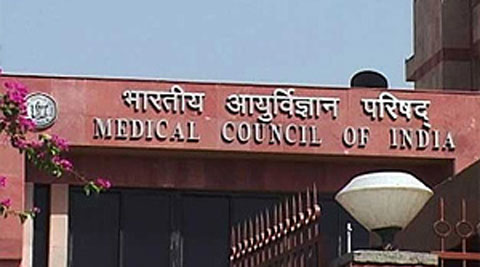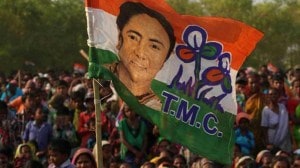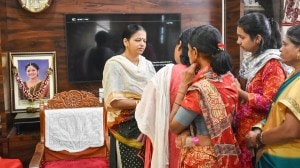- India
- International
Lodha committee has its task cut out giving MCI a facelift
Ever since the arrest of former MCI president Ketan Desai on charges of corruption, the image of MCI as an opaque and corrupt organisation has stuck in public perception.
 Ever since the arrest of former MCI president Ketan Desai on charges of corruption, the image of MCI as an opaque and corrupt organisation has stuck in public perception.
Ever since the arrest of former MCI president Ketan Desai on charges of corruption, the image of MCI as an opaque and corrupt organisation has stuck in public perception.
It may perhaps be, as a Parliamentary panel had recently observed, a little simplistic to lay all the blame for the ills of India’s health sector at the doors of the Medical Council of India. But on Monday when the Supreme Court constituted a three-member committee headed by former Chief Justice of India R M Lodha to oversee MCI, there would have been very few who did not agree that it was in need of such an oversight committee for a long time.
Ever since the arrest of former MCI president Ketan Desai on charges of corruption, the image of MCI as an opaque and corrupt organisation has stuck in public perception, reinforced by the repeated thwarting –in myriad ways– of any attempt to make legislative changes that would reform MCI. The latter has also led to murmurs of complicity of sections of the legislature with elements within and outside the MCI that benefit from the status quo. So much so that when former health minister Dr Harshvardhan was summarily shunted out of the department, there was speculation that his attempts to reform MCI did him in.
The whispers are not without reason. The idea of replacing MCI with a National Commission for Human Resources in Healthcare (NCHRH) has been on the horizon since 2009 and the concerned bill, after several twists and turns,,was rejected by the Parliamentary standing committee in 2012.
[related-post]
The government attempted to regulate the workings of the MCI by forming a Board of Governors in 2010 and gave it several extensions but in the end all attempts to amend the IMC Act 1956 did not succeed and MCI was reconstituted in 2013.
This is what a Parliamentary standing committee observed about MCI’s functioning in a report tabled in the Rajya Sabha last month: “The Committee observes that the main objective of the regulator of medical education and practice in India is to regulate quality of medical education, tailor medical education to the healthcare needs of the country, ensure adherence to quality standards by medical colleges, produce competent doctors possessing requisite skills and values as required by our health system and regulate medical practice in accordance with the professional code of ethics. The Medical Council of India, when tested on the above touchstone, has repeatedly been found short of fulfilling its mandated responsibilities. Quality of medical education is at its lowest ebb; the current model of medical education is not producing the right type of health professionals that meet the basic health needs of the country because medical education and curricula are not integrated with the needs of our health system; many of the products coming out of medical colleges are ill-prepared to serve in poor resource settings like Primary Health Centre and even at the district level; medical graduates lack competence in performing basic health care tasks like conducting normal deliveries; instances of unethical practice continue to grow due to which respect for the profession has dwindled. But the MCI has not been able to spearhead any serious reforms in medical education to address these gaps.”

This is what in medical terms one would call the benign aspects of the ills of MCI. The corruption in the regulator has assumed such proportions that even its seniormost functionaries admit to it.
“The Committee takes note of the admission of the President of MCI that corruption is there when there is sanctioning of medical colleges or increasing or decreasing of medical seats. However, the Committee finds the inaction of the MCI enigmatic in this matter. If the MCI is aware of the fact that denial of recognition of a medical college or grant of seats and then its permission /enhancement or reduction leads to corruption, then the Committee wonders why it has failed to put in place a framework or system which can plug these loopholes,” reads the report of the same Parliamentary panel.
It goes on to add: “The Committee is of the view that there is too much power concentrated in a single body (i.e. the MCI), and it has failed to create a transparent system of licensing of medical colleges. The MCI currently sets standards for recognition; inspects and licenses medical colleges; overseas Registration and Ethical Conduct of Doctors. It now proposes to undertake accreditation as well. Such concentration of powers creates a serious conflict of interest and provides a fertile ground for misuse of authority. The Committee, therefore, favours bifurcation of the functions of MCI and recommends that different structures be created for discharging different functions.”
There are documents and experiences galore that say MCI reforms should have happened yesterday. Whether Lodha Committee manages to inculcate those changes or ends up being one of the numerous other attempts at cleaning up the medical education scene remains to be seen.
More Explained
EXPRESS OPINION
Apr 26: Latest News
- 01
- 02
- 03
- 04
- 05










































